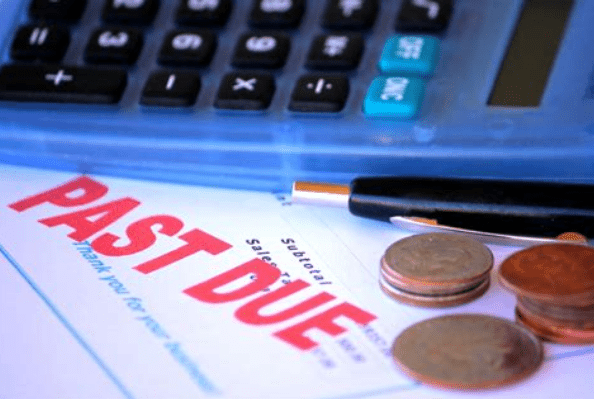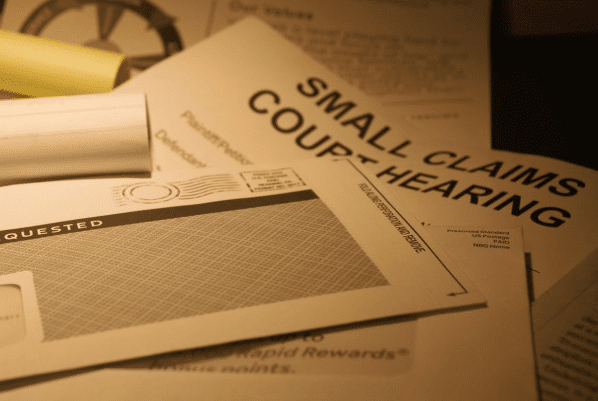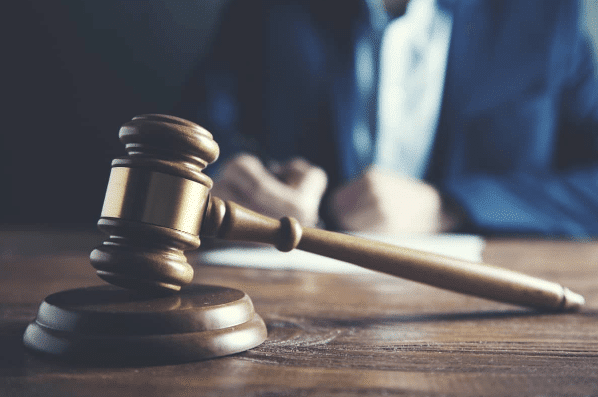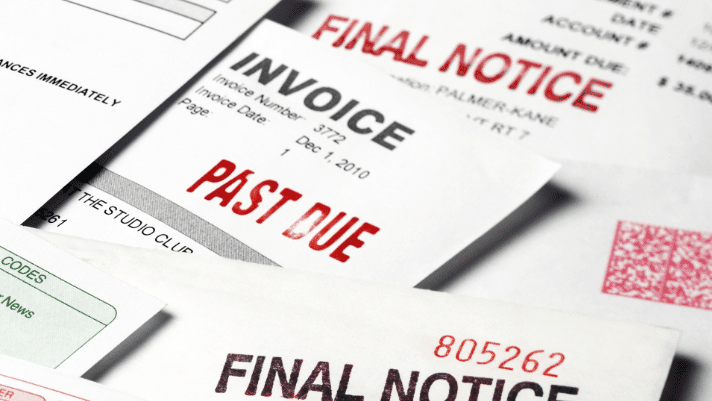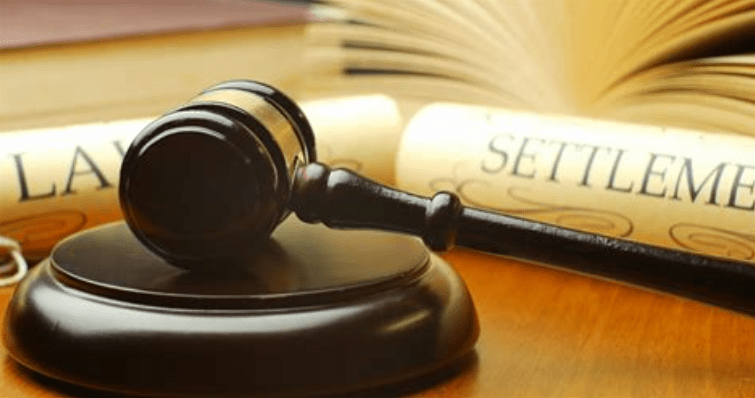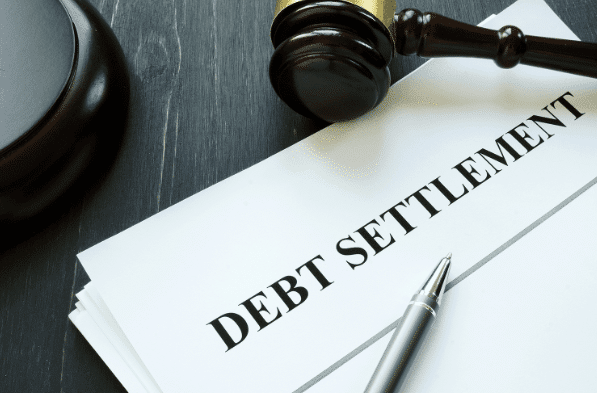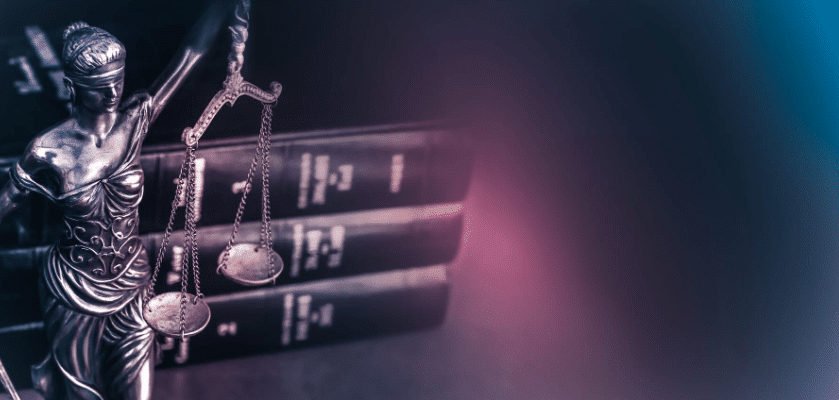In Maryland, when you receive a Writ of Summons for debt collection, remember you’ve got 15-30 days to respond. The best way to do this is by filing an Answer, also known as a Notice of Intent to Defend. With ZumaZip, you can draft and file your Answer in just 15 minutes. So don’t stress—let us make this process quick and easy for you!
If you’re feeling scared and anxious after being served with a Writ of Summons for debt collection in Maryland, remember that you’re not alone—ZumaZip is here to support you every step of the way.
Below, we’ve compiled helpful information and advice tailored to answering a summons for debt collection in Maryland. This list includes crucial details specific to debt collection lawsuits in Maryland, such as important deadlines and state-specific forms you’ll need to know about. Don’t worry—we’ve got your back!
Table of Contents
- Deadlines
- Forms
- Fees
- Your rights
- Steps to Respond
- What is ZumaZip?
- Statute of Limitations in Maryland
- Maryland legal aid
- Key Takeaways
Maryland deadline for answering a debt collection Writ of Summons
When you get sued for a debt in Maryland, you receive a Writ of Summons and Complaint in the mail. The Summons document notifies you of the lawsuit, while the Complaint lists the claims that are being made against you. Most debt collection lawsuits are under the jurisdiction of the Maryland district courts.
There is a section on the Writ of Summons called the Notice of Intention to Defend. If you plan to fight back against the case, you must sign and file the Notice of Intention to Defend before the deadline.
In Maryland, the deadline to respond to a Writ of Summons and Complaint is 15 days. However, there are some exceptions to this rule, which are listed in Maryland Rules of Civil Procedure for the District Court, Rule 3-307:
“(a) To Be Filed With Court–When Service Not Required. The defendant, including a counter-defendant, cross-defendant, and third-party defendant, shall file with the court a notice of intention to defend which may include any explanation or ground of defense. When the defendant is represented by an attorney, the notice shall be served in accordance with Rule 1-321. A defendant not represented by an attorney need not serve the notice on any party.
(b) Time for Filing. (1)Generally. Except as provided by subsection (b)(2) of this Rule, the notice shall be filed within 15 days after service of the complaint, counterclaim, cross-claim, or third-party claim.
(2)Exceptions. A defendant shall file the notice within 60 days after being served if the defendant is:
(A) served outside of the State;
(B) a person who is required by statute of this State to have a resident agent and who is served by service upon the State Department of Assessments and Taxation, the Insurance Commissioner, or some other agency of the State authorized by statute to receive process; or
(C) the United States or an officer or agency of the United States served pursuant to Rule 3-124(m) or (n).”
If you want to respond to the debt collection Summons by filing a counterclaim, cross-claim, or third party claim, make sure to file your document within 10 days of the deadline for filing the Notice of Intention to Defend.
The deadline in Maryland circuit court is different
If your case is filed in the Maryland Circuit Court, you have 30 days to respond to a Summons and Complaint, as outlined in Rule 2-321(a) of the Maryland Circuit Court Rules of Civil Procedure, which states:
“General Rule. A party shall file an answer to an original complaint, counterclaim, cross-claim, or third-party claim within 30 days after being served, except as provided by sections (b) and (c) of this Rule.”
Like the district court, there are some exceptions to this rule at the circuit court level. You can check the exceptions listed in Rule 2-321(b).
Maryland Answer to Summons Forms
Maryland tries to make it relatively easy for a defendant to answer a summons. This is why the Writ of Summons document includes a Notice of Intention to Defend that you can fill out and send back as your response.
That being said, the Notice of Intent to Defend doesn’t have a lot of room for you to explain your side of the case. ZumaZip’s Answer form, which fill the same function of a Notice of Intent to Defend, gives you room to respond to all the claims and defend yourself.
Maryland does not charge a fee to file an Answer
Good news: there is no fee to file an Answer or Notice of Intent to Defend in Maryland. The only out-of-pocket expense you might have to pay would be the cost of a stamp when mailing.
However, if you decide to file a counterclaim, cross-claim, or third party claim, the filing fee is $18.
What debt collectors can’t do in Maryland
In order to respond effectively to a debt collection case in Maryland, you should have a general understanding of the laws and regulations governing this type of civil action.
In Maryland, the law governing debt collection cases is Commercial Law §§ 14-201 through 14-204 of the Annotated Code of Maryland. These statutory provisions contain a variety of limitations on what debt collection companies can do, and how they can attempt to collect on an alleged outstanding stand. According to this law, debt collectors
- Can’t use or threaten to use force or violence to collect an alleged outstanding debt;
- Can’t threaten criminal prosecution;
- Can’t disclose or threaten to disclose information that will negatively impact your reputation;
- Can’t contact your employer;
- Can’t attempt to contact you during “unusual hours” (extremely early in the morning, late at night, etc.); and
- Can’t use obscene or grossly abusive language while communicating with you.
If debt collectors have used any of these methods to get you to pay off a debt, you can add it as an affirmative defense in your Answer document. You can also consider filing a counterclaim, because you may be entitled to compensation.
Responding to a debt collection lawsuit in Maryland can feel overwhelming, but don’t worry—we’ve got a simple guide to help you through it. Follow these three steps to prepare your Answer:
- Address Each Claim: Take the time to respond to each claim listed in the Complaint. Be thorough and make sure to address each one individually.
- Assert Your Defenses: It’s important to assert any affirmative defenses you may have. These could include things like the statute of limitations or improper service of the lawsuit.
- File Your Answer: Once you’ve prepared your Answer, it’s time to file it with the court. Make sure to also send a copy to the opposing attorney so they’re aware of your response.
By following these steps, you’ll be well-prepared to defend yourself in a debt collection lawsuit in Maryland. Don’t hesitate to reach out if you need further assistance along the way!
1. Answer each claim listed in the Complaint
Your Answer document should focus primarily on responding to the specific claims, or allegations, listed in the Complaint document that you received. In response to each allegation, you can admit, deny, or deny due to lack of knowledge. Let’s explain.
- When you admit a claim, it’s like saying “This is true.” When you admit a claim, there is no contest. Admitting all the claims in your Answer would probably lead to a judgment against you.
- When you deny a claim, it’s like saying “Prove it.” Keep in mind that this isn’t the same as saying “This is not true.” Denying a claim is simply refusing to admit it as truth before a court of law.
- When you deny a claim due to lack of knowledge, it’s like saying “I don’t know.” This is a perfectly fine response to use if you aren’t sure about the allegations being made against you.
Most attorneys recommend denying as many claims as possible, because this will force the plaintiff to do more work to prove their side of the case. If they don’t have the proper documentation for proof, their case won’t stand.
Draft an Answer to your debt lawsuit in 15 minutes with ZumaZip.
2. Assert your affirmative defenses
If you decide to contest the debt collection lawsuit, invest the time in researching affirmative defenses. You may be wondering, “what is an affirmative defense?” Well, it is essentially an argument you make before the court, or in a motion, that the debt collection company suing you does not have a viable case. Here are some examples of affirmative defenses:
- The account alleged to be delinquent is not your account.
- The contract was already canceled. Therefore you don’t owe the creditor anything.
- The debt collector’s lawsuit was filed outside the statute of limitations (more on this below). It is extremely important to affirmatively raise the statute of limitations since the court will not know the statute of limitations expired. The responsibility is on you to advocate for yourself and assert these affirmative defenses. It is possible to show the court that the statute of limitations expired by introducing a copy of the debt on your credit report as evidence.
These are a few of the many affirmative defenses. However, it is important to note that simply being unable to pay back your debt is not typically a viable legal defense.
In Maryland, a Writ of Summons needs to be properly served in accordance with state law. In some instances, a debt collection lawsuit is not properly served or was improperly served. If you find yourself in this situation, you can raise this issue with the court to challenge the lawsuit. You can file a pretrial request that the case be dismissed for improper service or raise improper service during trial.
ZumaZip can help you assert your affirmative defenses in the right way.
3. File the Answer in court, and send a copy to the opposing attorney.
After you’ve drafted your Answer, you should file it within the Maryland’s state deadline (15 days for district court cases, and 30 days for circuit court cases). Maryland’s court e-filing system making filing your Answer easy in some counties. It is not a statewide service, so you might have to mail your Answer for filing or drop it off in person.
ZumaZip knows all the steps to court filing in Maryland, so you can save the stress of doing it yourself.
After filing your Answer, make a copy and send it to the opposing attorney via USPS certified mail. The attorney’s address should be listed on the Writ of Summons document and the Complaint.
Why ZumaZip?
ZumaZip is your go-to solution for taking on debt collectors with ease. Whether you need to respond to a debt lawsuit, send correspondence to collectors, or negotiate a settlement, ZumaZip has you covered.
Our Answer service, available through a user-friendly web app, guides you through the process step by step. We’ll ask you all the necessary questions to complete your Answer comprehensively. Once you’re done, our team of attorneys will review your document to ensure accuracy, and then file it on your behalf. With ZumaZip, fighting back against debt collectors has never been simpler.
Statute of limitations on debt in Maryland
There are specific time limits, set forth by Maryland laws, that govern the validity of a debt collection lawsuit. Basically, if a debt collection lawsuit is filed after the specific time limit expires, that lawsuit will likely be barred from moving forward. These laws are known as statute of limitations.
In fact, Maryland Statutes §5–101 states:
“ A civil action at law shall be filed within three years from the date it accrues unless another provision of the Code provides a different period of time within which an action shall be commenced.”
This means that, in Maryland, the statute of limitations for a debt collection lawsuit is three years. In other words, debt collectors are required to initiate their case within three years of the time that the last activity was made on an account. This applies to both alleged debts based on a written contract and “open accounts” (credit cards).
If a debt collector is attempting to collect an alleged amount owed on a credit card, it means the date of the last activity (the date of last payment) on the account or the date the account was written off as a bad debt was at least three years ago.
As a result, if your account is older than three years, it is possible to assert the statute of limitations as an affirmative defense and get the case dismissed entirely.
The table below further outlines the MD statute of limitations on debt:
| Debt Type | Deadline |
|---|---|
| Credit Card | 3 years |
| Medical | 3 years |
| Student Loan | 3 years |
| Auto Loan | 3 years |
| Mortgage | 3 years |
| Personal Loan | 3 years |
| Judgment | 12 years |
| Source: Md. Code, Cts. & Jud. Proc. § 5-101 and § 5-102 |
Learn more about how the statute of limitations can be used in a debt collection lawsuit here.
Maryland legal aid organizations can assist you
If you need assistance defending yourself from a debt collection lawsuit, there are organizations in Maryland who are ready and able to provide assistance. For example, Maryland Legal Aid is the largest provider of free, direct legal services in the State of Maryland and has 12 office locations in Baltimore City and in Maryland’s 23 counties.
In addition to Maryland Legal Aid, there is also the Debtor Assistance Project, which is a collaborative legal clinic featuring an innovative partnership between the U.S. Bankruptcy Court for the District of Maryland and members of the legal community in Maryland.
The Debtor Assistance Project provides people with the opportunity to meet with a volunteer bankruptcy attorney for a free half-hour case review. If you would like to schedule an appointment with a volunteer attorney through the Debtor Assistant Project, you need to schedule an appointment by phone. You can also meet with a volunteer attorney in person at the following locations:
Baltimore Federal Courthouse
101 W. Lombard Street, 1st Floor
Baltimore, MD 21201
Easton-Office of MidShore Pro Bono
8 S. West Street
Easton, MD 21601
Greenbelt Federal Courthouse
6500 Cherrywood Lane, 1st Floor
Greenbelt, MD 20770
Maryland court locations
Even though you can file your Answer online or send it to the courthouse in the mail, you might prefer to drop it off at the courthouse in person. Use this Maryland court directory to visit your court’s website, find your courthouse address, and contact your court’s clerk. Just click on your county on the left of the screen, and several options will appear that will help you locate your court.
Maryland courts by case type
In Maryland, debt collection lawsuits can be litigated in one of two types of courts:
- General District Court
- Circuit Court
General District Courts possess exclusive jurisdiction over any civil claim seeking $5,000 or less. The General District Courts and Circuit Courts share jurisdiction over civil claims where the amount at issue is between $5,001 and $30,000. If the lawsuit is seeking an amount above $30,000, then it must be filed in a Circuit Court.
Key Takeaways
So, in summary, here is an overview on how to respond to a Writ of Summons for debt collection in Maryland.
- You have 15 days to file your Answer (also known as Notice of Intent to Defend) in the district court (60 days if you do not reside in Maryland).
- You have 30 days to file your Answer in the circuit courts.
- You can use ZumaZip’s Answer form to prepare and send your response to the debt lawsuit in Maryland.
- There is no fee to file an Answer in Maryland courts.
- Your Answer document should focus on responding to each allegation listed in the Complaint and asserting your affirmative defenses.
- File your Answer with the court before the deadline, and send a copy of it to the opposing attorney. ZumaZip can file for you.
What is ZumaZip?
ZumaZip is a convenient solution designed to streamline your response to a debt collection lawsuit. Here’s a breakdown of what you can expect when you use ZumaZip:
Firstly, you’ll access our user-friendly web application, which guides you through the process step by step. You’ll be prompted to answer a series of questions related to your specific situation. Once you’ve completed the questionnaire, you have the option to either print out the finalized forms and mail them to the appropriate courts yourself, or you can opt to utilize ZumaZip’s services to file them on your behalf. Additionally, if you choose this option, an attorney will review your document for added peace of mind.
If you’re seeking guidance on how to effectively respond to a debt collection lawsuit, ZumaZip can provide the assistance you need. Feel free to explore our FAQs for more information on what ZumaZip has to offer.
What if I haven’t been sued yet?
If you’ve only received a collections notice, but not a lawsuit, the best way to respond is with a Debt Validation Letter. When a debt collector contacts you in any way, whether it’s by phone or mail, you can respond by formally requesting a debt validation with a Debt Validation Letter . This letter notifies the collector that you dispute the debt and forces them to provide proof you owe the debt. They can’t call you or continue collecting until they provide validation of the debt. This flowchart shows how you can use a Debt Validation Letter to win.
Get started with a Debt Validation Letter here.
How to Answer a Summons for debt collection in all 50 states
Here’s a list of guides on how to respond to a debt collection lawsuit in each state:
- Alabama
- Alaska
- Arizona
- Arkansas
- California
- Colorado
- Connecticut
- Delaware
- Florida
- Georgia
- Hawaii
- Idaho
- Illinois
- Indiana
- Iowa
- Kansas
- Kentucky
- Louisiana
- Maine
- Maryland
- Massachusetts
- Michigan
- Minnesota
- Mississippi
- Missouri
- Montana
- Nebraska
- Nevada
- New Hampshire
- New Jersey
- New Mexico
- New York
- North Carolina
- North Dakota
- Ohio
- Oklahoma
- Oregon
- Pennsylvania
- Rhode Island
- South Carolina
- South Dakota
- Tennessee
- Texas
- Utah
- Vermont; Vermont (Small Claims court)
- Virginia
- Washington
- West Virginia
- Wisconsin
- Wyoming
Guides on how to beat every debt collector
Hey there! Facing off against a debt collector can feel like a daunting challenge, but fear not! We’re here to help you navigate through it all with our handy guides designed to assist you in beating every debt collector you encounter. Whether you’re facing a new lawsuit or dealing with a persistent collector, we’ve got your back. Stay positive, stay informed, and let’s tackle this together!
- Absolute Resolutions Investments LLC
- Accredited Collection Services
- Alliance One
- Amcol Clmbia
- American Recovery Service
- Asset Acceptance LLC
- Asset Recovery Solutions
- Associated Credit Services
- Autovest LLC
- Cach LLC
- Cavalry SPV I LLC
- Cerastes LLC
- Colinfobur
- Covington Credit
- Crown Asset Management
- CTC Debt Collector
- Cypress Financial Recoveries
- Delanor Kemper & Associates
- Eagle Loan of Ohio
- Educap
- Estate Information Services
- FIA Card Services
- Forster & Garbus
- Freshview Solutions
- Fulton Friedman & Gullace LLP
- Harvest Credit Management
- Howard Lee Schiff
- Hudson & Keyse LLC
- Integras Capital Recovery LLC
- Javitch Block
- Jefferson Capital Systems LLC
- LVNV Funding
- Mannbracken
- Mariner Finance
- Medicredit
- Michael J Adams PC
- Michael J Scott
- Midland Funding LLC
- Mullooly, Jeffrey, Rooney & Flynn
- Mountain Land Collections
- MRS Associates
- National Collegiate Trust
- Nationstar Foreclosure
- Northstar Capital Acquisition
- NCEP LLC
- NRC Collection Agency
- OneMain Financial
- Palisades Collection LLC
- Pallida LLC
- Paragon Revenue Group
- Pinnacle Collections Agency
- PMAB LLC
- Portfolio Recovery Associates
- Provest Law
- PYOD LLC
- Reunion Student Loan Finance Corporation
- Revenue Group
- Regents and Associates
- RSIEH
- Salander Enterprises LLC
- Second Round Sub LLC
- Security Credit Services
- Sherman Financial Group
- Suttell and Hammer
- T-Mobile
- Transworld Systems
- Tulsa Teachers Credit Union
- UCB Collection
- Velo Law Office
- Velocity Investments
- Waypoint Resource Group
- Weinberg and Associates
- Wolpoff & Abramson
Settle your medical debt
Having a health challenge is stressful, but dealing medical debt on top of it is overwhelming. Here are some resources on how to manage medical debt.
- Am I Responsible for My Spouse’s Medical Debt?
- Do I Need a Lawyer for Medical Bills?
- Do I Need a Lawyer to Fight Medical Bill Debt?
- Does Bankruptcy Clear Medical Debt?
- How Much Do Collection Agencies Pay for Medical Debt?
- How to Find Medical Debt Forgiveness Programs
- Is There a Statute of Limitations on Medical Bills?
- Medical Debt Statute of Limitations by State
- Summoned to Court for Medical Bills — What Do I Do?
- Summoned to Court for Medical Bills? What to Do Next
Stop calls from Debt Collectors
Do you keep getting calls from an unknown number, only to realize that it’s a debt collector on the other line? If you’ve been called by any of the following numbers, chances are you have collectors coming after you, and we’ll tell you how to stop them.


























